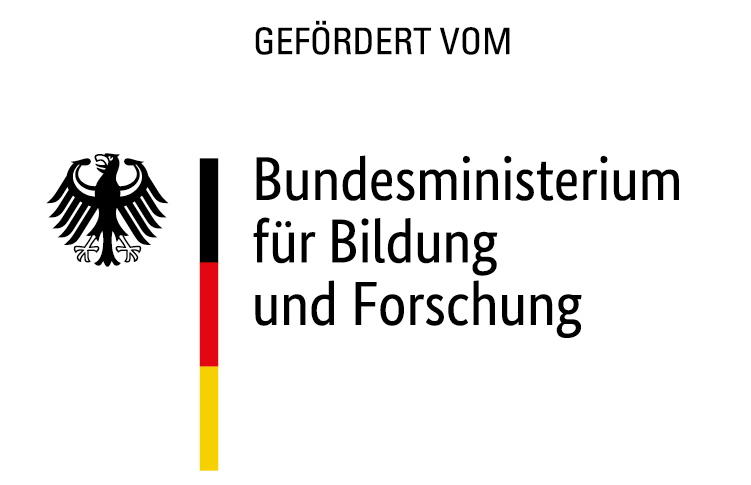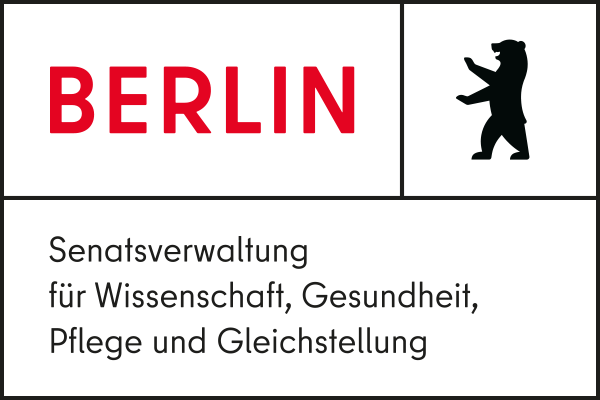#Berlinforschtmit
PROFESSIONAL BACKGROUND
#Berlinforschtmit – the TD-Lab understands itself as an experimental, transdisciplinary project. It follows the academic understanding of transdisciplinary, as for example Bergmann und Jahn (2017) formulate it. The projects aspiration is to complement the diverse forms of transdisciplinary research through innovative processes and methods. Thus, the
TD-Lab understand itself as an experimental space, in which new approaches are tested. The methodological, process-related, and operational insights acquired through the projects are shared and discussed with the academic community.
Experimental spaces for something new
The TD-Lab takes new ways since it not only includes practical experts in the research process, which is common in ideal transdisciplinary processes, described for example by Defila und Di Guilio (2018). Its objective is to include Berliners and their specific everyday life expertise and perspectives into the research process. Grunwald et al. (2020) call these new approaches “transdisciplinary research with citizen science”.
The TD-Lab implements this through the initial phase of co-exploration that precedes ideal-typical transdisciplinary processes. Topics and questions of Berliners are being co-explored during this phase. Everyone can participate and share her or his specific everyday life experiences. There is no pre-selection of stakeholders like in ideal-typical transdisciplinary processes. This results in different knowledges that need to be integrated and new possibilities. Thus, other epistemological mechanisms are employed, like Pettibone et al. (2022) described it for citizen science. Berliners are also included in the phases of Co-Design as well as the Co-Production of knowledge and its re-integration which come after the phase of co-exploration (Bergmann und Jahn, 2017).
Mit dem Aufruf des Videos erklären sie sich einverstanden, dass ihre Daten an YouTube übermittelt werden und das sie die Datenschutzerklärung gelesen haben.
Motivation
The objective of transdisciplinary research is to address and contribute to solutions for complex, societal challenges, so-called “real-world problems” (Jahn et al. 2012). To achieve this, different knowledge resources from sciences and societal practice, like associations, companies and administration are being included. To integrate additional everyday life knowledges into the research process means to expand the knowledge resources. Linked to that is also the normative aspiration to find even better solutions for societal challenges and to make them more adaptive to daily realities.
Objectives of the Berlin University Alliance are to foster the knowledge exchange between the sciences and society, to test new methods and approaches, to establish new networks and thereby to contribute to solutions for societal challenges. In this context the TD-Lab works on new practices and methods for transdisciplinary research and contributes to connecting sciences and Berliners regarding Berlin specific topics.
Methods
The TD-Lab works methodologically, meaning that concepts and formats designed for the work of the TD-Lab are based on already established methods and adapted to specific purposes. The TD-Lab utilizes methods form transdisciplinary research, which one can find for example in the td-net toolbox. On top of that, methodological approaches from citizen sciences, public participation and science communication are also employed. So far adapted methods from Design Thinking and the theatre technique of Clowning are being utilized. The TD-Lab peruses the goal to reflect the tested new or adapted methods with scientific communities and to make them available.
Principals
The TD-Lab is a project based on the experiences, methods, and approaches of the academic fields of transdisciplinary and citizen sciences as well as the political field of public participation. There are existing principals and conventions for each of these fields (Allianz Vielfältige Demokratie, 2017; ECSA, 2015; Network for Transdisciplinary Research). On this basis seven principals were developed, which are also adapted to the concrete aims and frameworks of the TD-Lab. They serve as a guidance for the experimental work.
Principals of the TD-Lab
- The joint research of scientists and citizens in the TD-Lab contributes to solutions for societal challenges on both a small as well as a large scale. The TD-Lab benefits the academic as well as the societal knowledge gain.
- The joint research of scientists and citizens in the TD-Lab begins with an agreement of collective research requirements.
- Scientists and citizens are integrated in all phases of the research process.
- The TD-Lab involves a multiplicity of perspectives and stakeholders in the joint research process. It primarily addresses citizens who have not yet been reached by research and science communication.
- The joint research of the TD-Lab is based on scientific knowledge as well as everyday life perspectives and experiences of citizens. A balance is sought in the consideration of different knowledge bases.
- Joint research is a process of learning. The TD-Lab offers an experimental space in which all participants have and reflect an individual and collective (social) learning process.
- The joint research is conducted with the highest transparency and openness for participants and outsiders possible. This concerns the process, decisions as well as the availability and usability of data and results (open science).
- The joint research respects academic and ethical rules as well as legal fundamentals, like the right of intellectual property, confidentiality, data protection, a good academic practice and rules of conduct and procedure agreed jointly by scientists and citizens.
References
Allianz Vielfältige Demokratie (2017): Qualität von Bürgerbeteiligung. Zehn Grundsätze mit Leitfragen und Empfehlungen. Hrsg. Bertelsmann Stiftung.
Bergmann, Matthias und Jahn, Thomas (2017): A Model for the Transdisciplinary Research Process. In: GAIA 26 (4), 304.
Defilia, Rico und Di Giulio, Antoinetta (2018): Partizipative Wissenserzeugung und Wissenschaftlichkeit – ein methodologischer Beitrag. In: Defila, Rico und Di Giulio, Antoinetta (Hrsg.): Transdiszipinär und transformativ forschen.
ECSA (European Citizen Science Association) (2015): Ten Principles of Citizen Science. Berlin. https://ecsa.citizen-science.net/wpcontent/uploads/2021/ECSA_Ten_principles_of_CS_German.pdf (Zugriff 9.3.2022)
Grunwald, Achim; Schäfer, Martina und Bergmann, Matthias (2020): Neue Formate transdisziplinärer Forschung: Ausdifferenzierte Brücken zwischen Wissenschaft und Praxis. In: GAIA 29 (2), 106 – 114.
Jahn, Thomas; Bergmann, Matthias und Keil, Florian (2012): Transdisciplinarity. Between mainstreaming and marginalization. In: Ecological Economics 79, 1 – 10.
Network for Transdisciplinary Research (td-net): Ziele und Prinzipien. https://transdisciplinarity.ch/de/transdisziplinaritat/was-ist-td/ziele-und-prinzipien (Zugriff 9.3.2022)
Pettibone, Lisa; Blättel-Mink, Birgit; Balász, Bálint; Giulio, Antoinetta Di; Göbel, Claudia; Heubach, Katja; Hummel, Diana; Lundershausen, Johannes; Lux, Alexandra; Potthast, Thomas; Vohland, Katrin; Wyborn, Carina (2018): Transdisciplinary Sustainability Research and Citizen Science: Options for Mutual Learning. In: GAIA 27 (2), 222 – 225.
Gefördert vom Bundesministerium für Bildung und Forschung (BMBF) und dem Land Berlin im Rahmen der Exzellenzstrategie von Bund und Ländern







